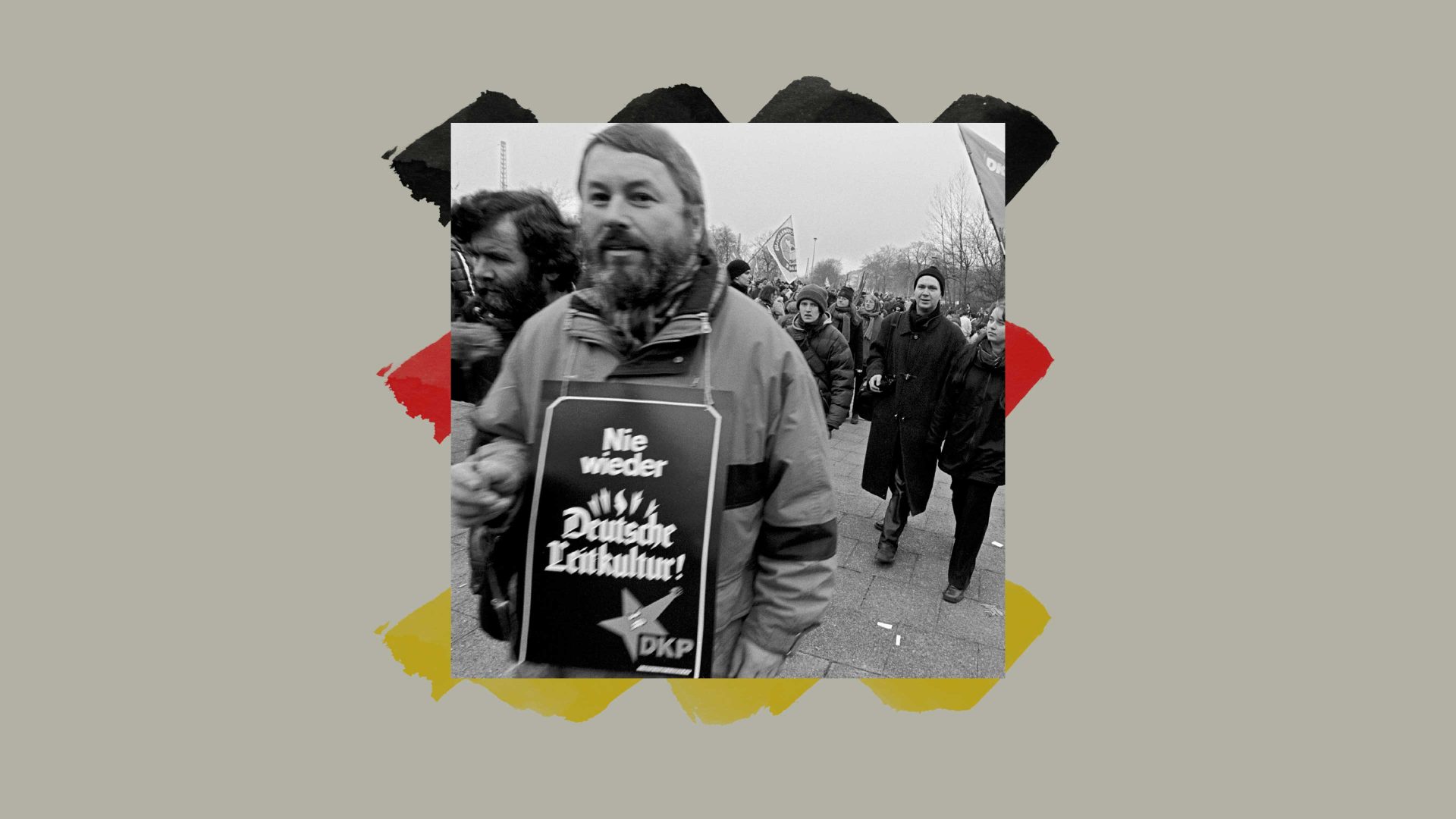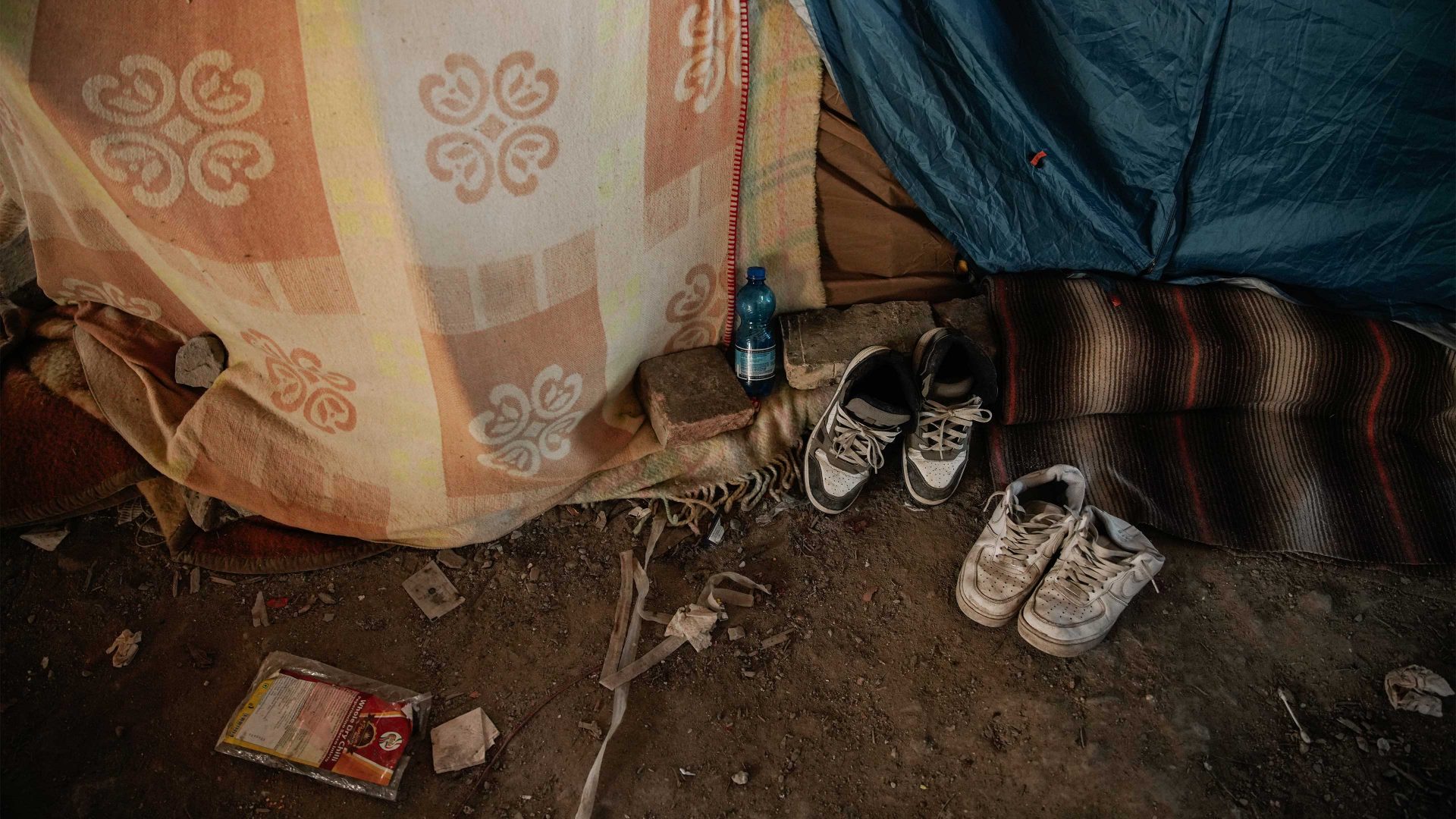During lunch with my mother at her friend’s place, I found myself in the company of sharp-witted ladies who could be straight out of a Prussian or Westphalian Downton Abbey.
After indulging in a risotto with (white) asparagus followed by a trendy Rhabarber (rhubarb) compote, I couldn’t resist sharing the latest TikTok sensation, “Barbara’s Rhabarber-Bar”, a German tongue twister that has gone viral, complete with a dance. It was the perfect antidote for a tough week. Who would have thought German nonsense culture could go global?
When I approached our host to say goodbye, she reminded me that she is very much neither a hugger nor a kisser. She then lamented how the Lebanese children to whom she teaches German pro bono are still being told by other teachers that for integration purposes they absolutely must shake hands with every German.
The other woman nodded vigorously in agreement, noting that even the Catholic church has finally disposed of the Friedensgruß (the handshake of peace at mass), thanks to Covid.
Evidently, what was one considered fundamental German behaviour, such as Händeschütteln, is no longer a must. And while the diversity of European cultures is apparent, stating what is genuinely German, French, British, Polish or Dutch today is challenging.
The German Christian Democrats had a go at it at their party convention this week: Mut zur Leitkultur!, the draft of the party’s new fundamental political programme says, advocating the courage to embrace a “defining (or leading) culture”.
The term Leitkultur was coined in the late 1990s by Bassam Tibi, a Syrian-born political scientist educated in Frankfurt. Tibi, a liberal Muslim, warned early on about the threat of Islamist antisemitism, and tried to promote a Euro-Islam.
But his Leitkultur-call for a transcultural consensus on civil and constitutional norms was – intentionally – misinterpreted as a “Bier und Bratwurst” obligation for immigrants. The term became toxic, because ridiculing the concept was easy. Putting mechanisms in place to achieve integration would have required effort.
This was a missed opportunity.
The consequences made international headlines last week: a thousand-plus bearded men and a few veiled women marched through Hamburg, calling for a caliphate. Their banners read: “Germany – a dictatorship of values” and “the caliphate is the solution”. No sign of rhubarb-infused dance culture there.
The organisers didn’t promote terrorism, but they still aim to divide society, targeting migrant youths on social media and amplifying every instance of real or perceived discrimination as Islamophobic proof that German society and media will never fully accept anyone called Ahmed or Zeynep. This may hold true for most AfD supporters, but not for the vast majority of society.
A recent, non-representative survey and a number of media reports suggest that a significant number of Muslim teenagers believe Sharia law takes precedence over German laws. And as Islamist influencers have seen a massive boost on TikTok since October 7, 2023, concerns have grown, especially among teachers as they follow the news about Islamist attacks on their colleagues in France.
“Solely” calling for a caliphate is protected by freedom of speech. Yet experts say that the extremist group behind it, Muslim Interaktiv, could have been dismantled long ago. Maybe the outcry over this latest blatant disdain for democracy will spur action.
Some view the CDU’s revival of Leitkultur and the new approach to (cut) migration and (improve) integration as a departure from Angela Merkel’s legacy.
The original draft of the CDU’s manifesto stated: “An Islam that doesn’t share our values and rejects our liberal society doesn’t belong to Germany.” The new draft asserts: “Muslims who share our values belong to Germany.”
This obviously won’t solve the question of how to handle extremists with German citizenship: of the more than 1,200 Islamist radicals monitored by intelligence services, more than 70% hold German passports.
Nevertheless, the CDU’s attempt to offer a sense of guidance and orientation for what is expected of immigrants and asylum seekers is worthwhile, especially when not prioritised by other democratic parties.
Luckily, liberal Muslims have also taken a stand. Around 800 people rallied at the counter-demonstration against Islamic law and antisemitism last Saturday. “No one harms the Islamic religion and Muslims more than the Islamists themselves,” said Ali Ertan Toprak of the Kurdish Community.




